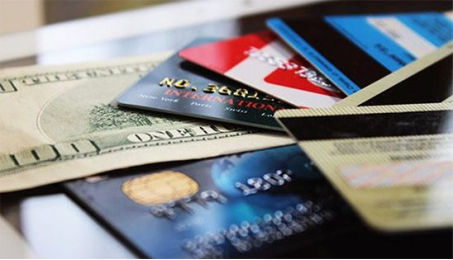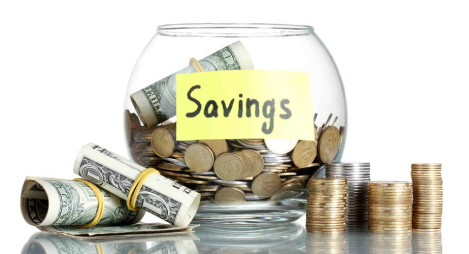Avoid New Debt; Get A Month Ahead Of Bills
Avoiding new debt and getting a month ahead of bills are essential steps toward achieving financial stability. While it may seem obvious, it’s important to reiterate that if you are already in debt, you must stop using debt to finance your expenses. When you are already struggling with debt problems, taking on more debt will only exacerbate your financial situation. To break free from the debt cycle, adopting a mindset shift from being a spender to becoming a saver is essential. Acknowledging that debt problems are often a result of overspending is the first step toward making positive changes. You can gradually improve your financial situation by curbing unnecessary expenses and prioritizing saving.
One effective strategy is to focus on how to get a month ahead of bills. This means setting aside enough money to cover your upcoming monthly expenses in advance. Doing so creates a buffer that provides financial security and reduces the stress of living paycheck to paycheck. To achieve this, you need to avoid lifestyle inflation, =Maximize savings opportunities=, save money, review your budget, and identify areas where you can cut back on expenses. Consider implementing a strict spending plan and redirecting any extra money towards building a reserve for future bills. It may require sacrifices and discipline in the short term, but the long-term benefits of financial stability and peace of mind are well worth it.
Remember, getting a month ahead of bills and avoiding new debt requires commitment and perseverance. Stay focused on your financial goals, track your progress, and celebrate small victories. With time, dedication, and a shift towards saving rather than spending, you can regain control of your finances and build a more secure future.
Paying Bills With Small Loans Or Credit Cards May Seem Like The Solution
Paying bills with small loans or credit cards may seem like a quick solution to financial difficulties. However, this approach often leads to further debt and more bad news down the road. Instead of relying on borrowing money to cover expenses, addressing the root causes of your financial struggles is essential.
One key aspect to consider is your spending habits. If you continue to spend beyond your means, you will always be in debt. Changing your mindset and adopting a more responsible approach to managing your finances is crucial. This means being mindful of your expenses, distinguishing between needs and wants, and making conscious decisions to prioritize your financial well-being. One effective strategy is to save for the proverbial rainy day. Unexpected expenses can arise anytime, and having an emergency fund in place can provide a safety net to help you avoid resorting to loans or credit cards. Start by setting aside a small portion of your monthly income, gradually building up your emergency fund.
Additionally, it is important to save for both short- and long-term goals. Whether saving for a vacation, a down payment on a home, or retirement, having specific financial goals can help you stay motivated and disciplined in your spending habits. By allocating a portion of your income towards these goals, you can gradually work towards achieving them without resorting to debt. Changing your spending habits and saving for the future requires discipline and commitment. It may not be easy at first, but with time and perseverance, you can break free from the cycle of debt and achieve financial stability. Seek resources, such as financial education courses or budgeting apps, that can provide guidance and support.
For Now, Realize You Need To Save Money
When you realize the importance of saving money, it’s time to act. The first step is to create a budget. Assess your income and expenses and allocate your money accordingly. Prioritize essential expenses like housing, utilities, and groceries. Identify areas where you can cut back and reduce unnecessary spending.
Start by evaluating your subscriptions. Consider canceling or reducing magazine subscriptions or any other recurring expenses you can live without. This will free up some extra cash that can be redirected towards savings. Next, look at your gym membership. If you’re not utilizing it frequently, consider canceling it or finding a more affordable alternative. Explore free workout options like outdoor activities or home workouts to maintain a healthy lifestyle without the added cost. Another expense to consider is your daily cup of coffee. While it may seem small, those daily purchases can add up over time. Consider brewing your coffee at home or bringing a thermos to work. By making this simple change, you can save significant money each month.
Don’t stop there – look for ways to reduce expenses in every aspect of your life. This can include cutting back on dining out, entertainment, or shopping for non-essential items. Challenge yourself to find creative alternatives that are more cost-effective. If you own multiple cars, consider selling one. This can help you save on insurance, maintenance, and fuel costs. Evaluate your transportation needs and determine if downsizing to one vehicle is feasible.
Earn More Money To Get A Month Ahead Of Bills
If you find yourself in a situation where you need to earn more money to get a month ahead of your bills, it’s time to explore additional income opportunities. Remember when we said we would discuss this later? This is later, and now it’s time to take action.
One option to consider is adding a part-time job to your current work schedule. Look for opportunities that align with your skills and interests. This could be a job in the evenings or on weekends, allowing you to maintain your current job while earning extra income. Be sure to consider the time commitment and how it may impact your work-life balance. Another option is starting a side gig or a small business. This could involve leveraging your hobbies, talents, or expertise to generate additional income. For example, if you have a knack for graphic design, you could offer freelance design services. If you enjoy baking, you could start a home-based bakery or sell your baked goods at local markets or online platforms.
When starting a side gig, it’s essential to consider the initial investment, time commitment, and market demand for your product or service. Take the time to research and plan your side gig to ensure its viability and success. Both adding a part-time job and starting a side gig require dedication, time management, and commitment. It’s essential to strike a balance between your existing responsibilities and your new income-generating activities. Be prepared to put in extra effort and prioritize your time effectively to maximize these opportunities. By earning more money through a part-time job or a side gig, you can get a month ahead of your bills and create a financial cushion. This will provide you with peace of mind and financial stability, allowing you to manage unexpected expenses better and work towards your long-term financial goals.
What To Do With Your New Money
When you have new money coming in, it’s important to take specific steps to ensure you make the most of it. Here are the key things you need to do:
- Add it to your budget: Review your current budget and determine how much of your new money you can allocate toward your financial goals. Consider your immediate needs, such as getting ahead of your bills, and assign a specific monthly amount to achieve this. Make sure to prioritize this goal in your budget.
- Track your spending: To ensure you’re using your new money wisely, track your expenses using a spending journal or a budgeting app. This will help you identify areas where you can cut back or adjust. By closely monitoring your spending, you can allocate your resources more effectively.
- Prioritize getting ahead of bills: While managing your new money, don’t forget that your main objective is to get ahead of your bills. Make it a priority to set aside a portion of your monthly income towards achieving this goal. Avoid unnecessary or impulsive spending that could hinder your progress.
- Build an emergency fund: Alongside getting a month ahead of your bills, it’s crucial to build an emergency fund. Set aside some of your new income to establish a safety net for unexpected expenses or emergencies. Aim to save at least three to six months’ worth of living expenses in this fund.
- Save for the future: While working towards getting a month ahead of your bills and paying off debt, don’t forget to save for the future. Allocate a portion of your new income towards long-term goals such as retirement, education, or buying a house. Consider opening a separate savings account or investment account to keep these funds separate and easy to track.
Remember, managing your new money effectively requires discipline and consistency. Stick to your budget, track your spending diligently, and regularly review your progress. By following these steps and keeping your goal of avoiding new debt and getting a month ahead of your bills in mind, you’ll be on the path to financial stability and greater peace of mind.
Conclusion
To achieve financial stability:
- Focus on avoiding new debt and getting a month ahead of your bills.
- Start by analyzing your expenses and cutting back on non-essential spending.
- Create a budget, prioritize needs over wants, and allocate your income accordingly.
- Once you’ve avoided new debt, save enough money to cover your next month’s expenses in advance.
- Use the money you were paying towards debt to accelerate your progress. This approach will provide financial security and freedom, eliminating the need for credit and creating a financial safety net.
- Stay committed, reassess your budget regularly, and adjust as needed to achieve long-term financial stability.




